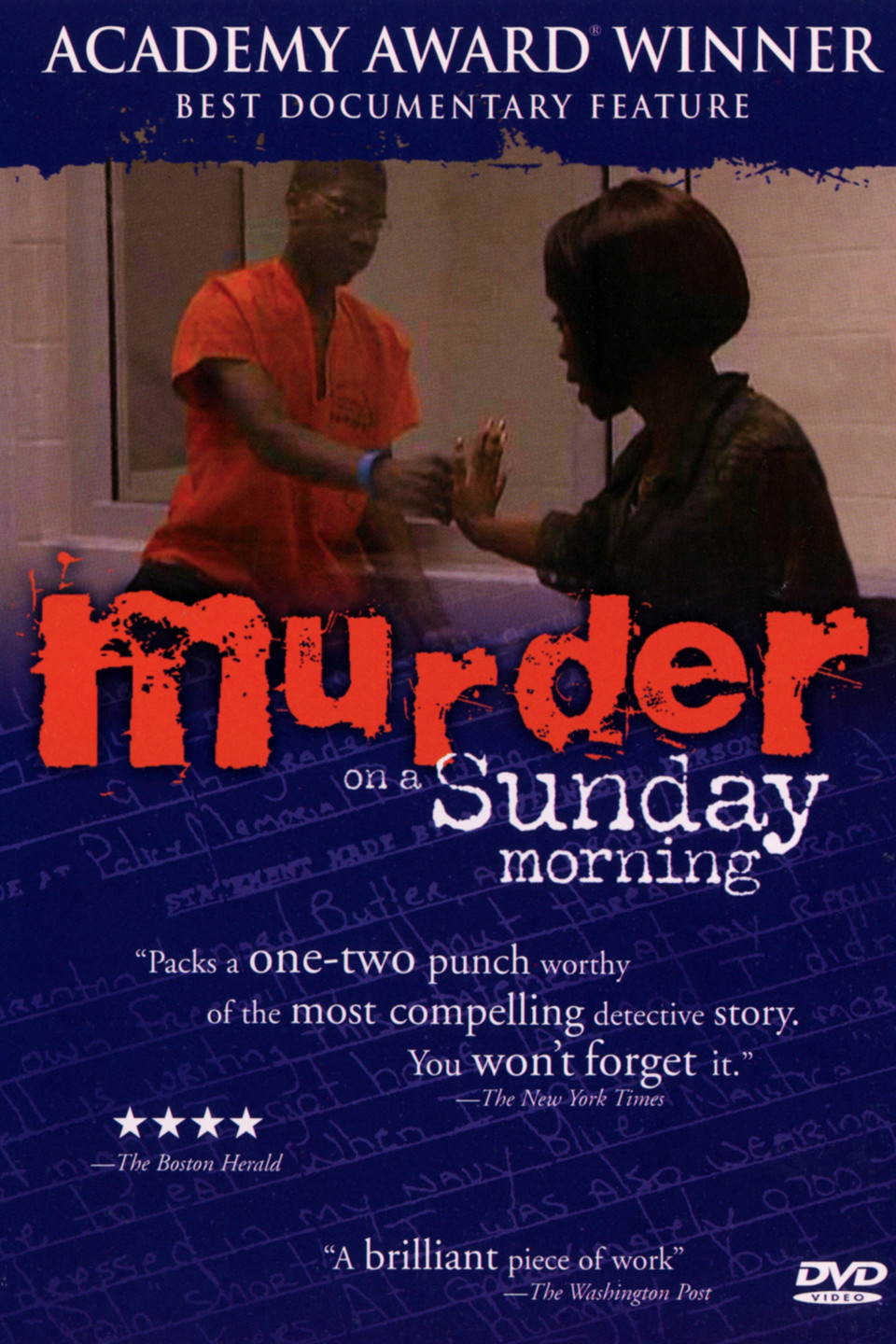
Murder on a Sunday Morning is a documentary film which premiered in 2001. The topic is a murder case which took place in Jacksonville, Florida, in the year 2000.
Here is some basic information about this film:
** Writer and director: Jean-Xavier de Lestrade
** Producer: Denis Poncet
** Run time: 111 minutes
Here is some basic information about the case:
On 7 May 2000, a white woman (Mary Ann Stephens) was shot and killed by a young black man, who stole her purse and disappeared. It happened on a Sunday morning; hence the title of the film.
About two hours later, a young black man (Brenton Butler) was picked up by the police. The victim’s husband (James Stephens) identified him as the perpetrator. The young man was arrested. During an interrogation he confessed. He was charged with murder and brought to trial. But the jury found him not guilty. He was released after six months in prison.
In this film, we follow the court case, which took place over ten days in November 2000. We also follow the investigation conducted by the two lawyers who were appointed to defend Butler:
** Ann Finnell
** Patrick McGuinness
What was the evidence against Butler?
An eyewitness identification and a confession.
Both items were false:
** Eyewitness identification is highly unreliable; especially when a white person has to identify a black person (or vice versa).
** The confession was false, because it was made under duress. Butler was interrogated for several hours without the presence of a lawyer.
No physical evidence connected Butler to the crime or the location. The police never found the murder weapon. Butler had an alibi: his mother claimed that he was at home when the attack took place. But this evidence was ignored.
James Stephens was standing next to his wife when she was shot. He was face to face with the killer, but only for a brief moment (less than one minute). He had described the killer as tall and 20-25 years old. Butler was not tall and only 15 years old. He did not fit the original description which the eyewitness had given to the police. But this problem was ignored as well.
The police accepted the eyewitness identification and began an interrogation. After a while they had a confession. The false identification led to the false confession.
Once the police had this evidence, they did not do any further investigation into the case. Fortunately, for Butler, the public defenders took their job very seriously. They put a lot of effort and a lot of time into their investigation.
This was a case of wrongful arrest and wrongful charge. It could also have been a case of wrongful conviction. Fortunately, for Butler, this did not happen: the jury realized that the prosecution did not have a case against Butler and therefore they declared him not guilty.
The real perpetrator was found after the end of the trial, when the public defenders received a tip. His name was Juan Curtis. His fingerprints were found on the victim’s purse (which had been found, but never tested for fingerprints).
The public defenders did the work the police officers should have done!
What do reviewers say about this film? On IMDb it has a rating of 80 per cent, which corresponds to four stars on Amazon. This average rating is quite good, but if you ask me, it is not high enough. I want to go all the way to the top with this product. I think it deserves a rating of five stars.
PS # 1. In 2002, this film won an Academy Award (an Oscar) as the best documentary film of 2001.
PS # 2. Brenton Butler tells his story in the following book: They Said It Was Murder (2004).
PS # 3. Eyewitness identification is highly unreliable. A famous case involves Jennifer Thompson-Cannino and Ronald Cotton. See their book Picking Cotton: Our Memoir of Injustice and Redemption (hardcover 2009, paperback 2010).
PS # 4. For information about false confessions, see the following books:
** True Stories about False Confessions edited by Rob Warden and Steven A. Drizin (2009)
** How the Police Generate False Confessions: An Inside Look at the Interrogation Room by James L. Trainum (2016)
PS # 5. For information about wrongful convictions, see the following books:
** Wrongful Convictions: True Murder Cases – Unbelievable Miscarriages of Justice by Jack Smith (2015)
** Blind Injustice: A Former Prosecutor Exposes the Psychology and Politics of Wrongful Convictions by Mark Goodsey (2017)
PS # 6. The French film-maker Jean-Xavier de Lestrade is perhaps best known as the man behind several documentary films about the death of Kathleen Peterson in 2001: Death on the Staircase.
*****

The cover of Brenton Butler's book
(published in 2004)
*****

The French film-maker
Jean-Xavier de Lestrade (born 1963)
*****
No comments:
Post a Comment